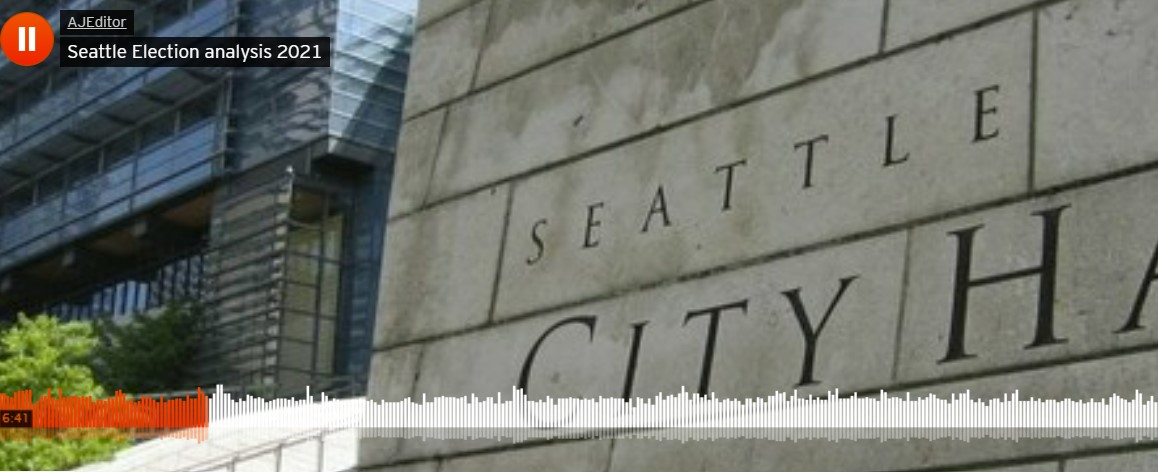In November, the day after Seattle elections, Post Alley published a long analysis of what had happened by Sandeep Kaushik, one of our political writers, and a political consultant who worked for PACs supporting the Harrel, Davison, and Nelson campaigns. In the piece, Sandeep suggested that the activist left in Seattle had misread the moment, pushing for policies that weren’t supported by most voters.
In most of the races, voters rejected activist candidates in favor of more moderate candidates committed to governing and making things work. The premise of the article was that activist candidates, emboldened by the winds of change that have been blowing particularly in the past year, had misread the public because they had been talking too much to themselves — a Twitter bubble — and not hearing what voters were saying. Polls of voters over the past year have tracked approval of City Council and the direction the city is headed in a decisively negative direction. Calls to defund the police by 50 percent as crime rises and a seeming inability of city leaders to implement successful strategies to reduce homelessness were what seemed to motivate voters.
So was this election an inflection point, a rejection of the current council’s competence in governing the city? Has the political landscape rearranged itself? Have voters chosen new leaders who will be any better at figuring out how to solve problems? Post Alley editor Douglas McLennan talks with Sandeep about his Post Alley story, what the elections mean for Seattle, and where we go from here.
Discover more from Post Alley
Subscribe to get the latest posts sent to your email.
